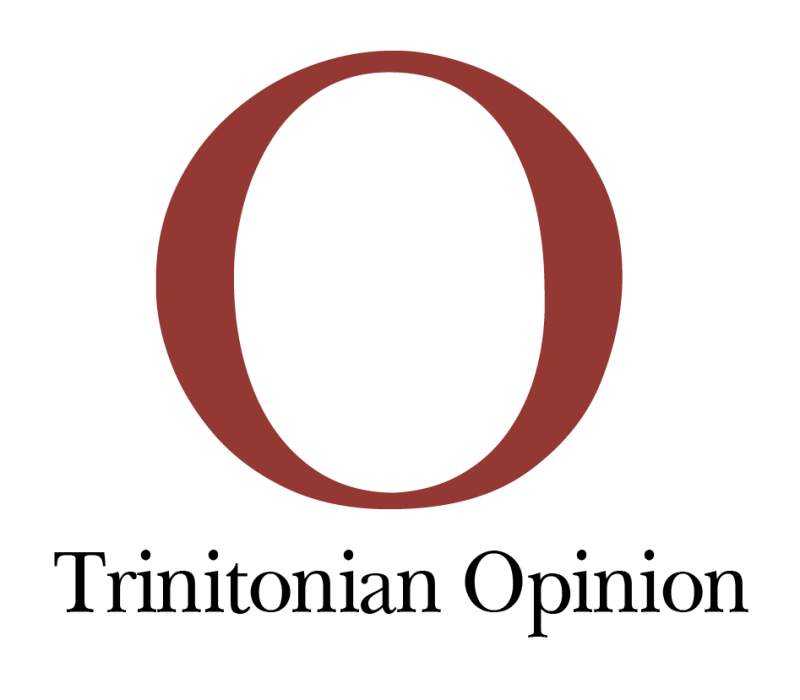Once again, the left has demonstrated that the best way to win an argument is to employ logical fallacies. Exhibit A: last week’s Trinitonian article titled “Promote free speech, not free discrimination,” written by Madeline and Brendan Kennedy.
One of the main problems in their article is the idea that, if an institution provides the opportunity for a person to voice his or her views, the institution must agree with those views. But this argument makes no sense. If an institution provides the opportunity for multiple contradictory viewpoints to be heard, it cannot agree with them all. For example, if Trinity allows some people to say they agree with religious liberty and others to say they do not agree with religious liberty, Trinity itself cannot simultaneously endorse religious liberty and its opposite. That would violate the law of noncontradiction.
In the article they argue, “When a part of the university sponsors Anderson, it follows that the department and the university believe those views are legitimate and worthy of consideration,” and “I am disappointed that one of our academic departments, and by extension the university, would support this speaker and perspective, endorsing the idea that a subsection of the Trinity community should be denied equal rights.”
This is preposterous. Trinity has two main political clubs: Trinity Progressives and Tigers for Liberty. Does supporting both clubs mean that Trinity as a university agrees with both of them simultaneously in the same sense? Hopefully you see my point by now.
Another rhetorical tactic the Kennedys employ is to misframe their opponent in a way that is so extreme that no one could possibly agree with him. This fallacy is known as a straw man. For example, they state, “Anderson’s work makes it clear that his views on “˜religious liberty’ are based on a belief that LGBTQ people are lesser.” The authors try to define Anderson as someone who believes that people who are lesbian, gay, bisexual, transgender or queer are less than human. Quite an accusation “” with no supporting evidence.
Perhaps the most important problem in the article is how self-contradictory it is when it comes to free speech. The title includes the words “Promote free speech.” The article includes the phrases “I want to encourage a dialogue by challenging that decision” [to allow Anderson to speak on campus] and “I encourage you to attend Anderson’s lecture if you feel comfortable.” So why is the author so all over the place if the point made in the article is sound? Because the point being made in the article is NOT sound. The author only believes in free speech when people are not offended. That is not free speech. Free speech means you can say what you want. It means you are free to mention facts or lines of argument that may offend certain people, and whether someone is offended by what you say is not relevant to your right to say it.
This is the real world. College students are adults, not toddlers. If you are offended by someone’s argument, you should be offended because the argument uses unfair tactics and logical fallacies, not because the conclusion of the argument isn’t what you wanted. Just because someone believes and thinks differently from you about how to define marriage and what religious liberty is does not give you the right to silence them and frame them as someone who thinks that homosexuals are less than human beings. I would recommend everyone go on YouTube and search “Ryan Anderson debates gay marriage with Piers Morgan” if you want to get a feel for Anderson. And I hope Madeline and Brendan showed up to Anderson’s event and challenged him with logic and reason, not with an appeal to emotion and with claims that he is some sort of evil person who thinks LGBTQ people are “lesser.”
Alexander Jacobs is a first-year economics major.






